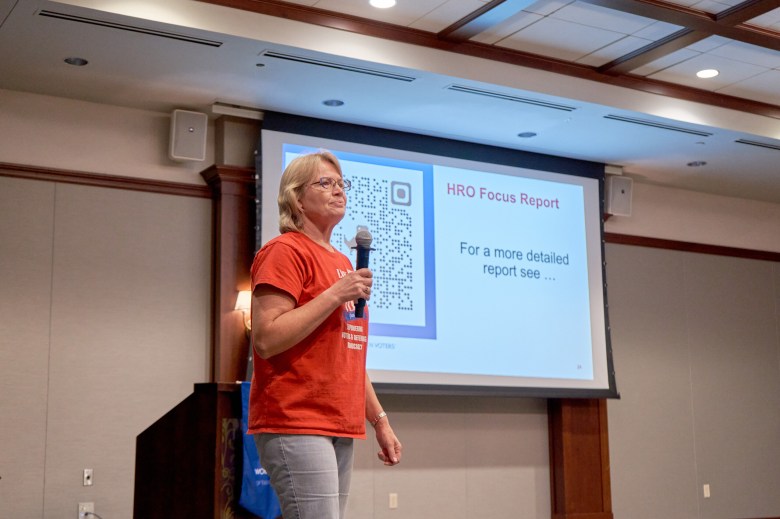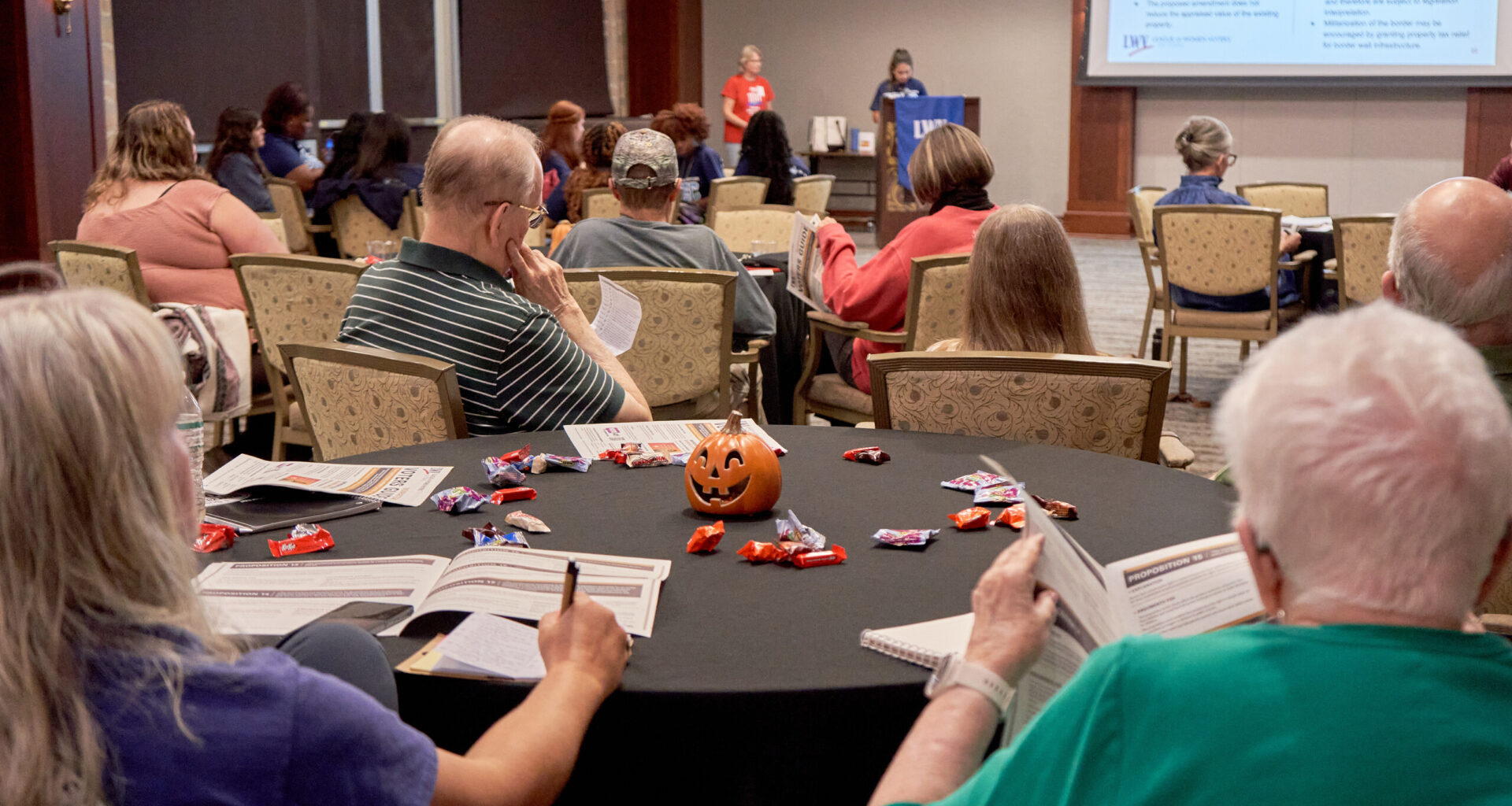Tax exemptions, money to bolster the water supply, and voting requirements are among the 17 propositions Texans will vote on in the Nov. 4 election.
An Oct. 22 nonpartisan forum aimed to educate voters about the proposed state constitutional amendments on the ballot. The Fort Worth Report collaborated with the League of Women Voters of Tarrant County, SteerFW, NAACP Fort Worth, March to the Polls and the League of United Latin American Citizens of Fort Worth for the event.
Voters can get an in-depth breakdown of each constitutional amendment here and see the League of Women Voters’ voting guide here. Using cell phones is not allowed at the ballot box, but paper notes about the amendments are permitted.
Early voting opened Oct. 20 and runs until Oct. 31. Find voting times and locations close to you on Tarrant County’s website. Election Day is Nov. 4.
Amendments on the ballot include raising the homestead exemption, significantly increasing business tax exemptions, funding water projects and clarifying citizenship requirements for voters.
The Texas Constitution is long and complicated, said Janet Mattern, president of the local League of Women Voters. It requires voter-approved amendments for initiatives such as state programs, tax relief and special funds. As of last year, 711 amendments had gone to voters, 530 of which were adopted.
“Once you write an amendment, it’s permanent,” Mattern told attendees. “So you always have to consider, when you’re voting for a proposed amendment, is this something that will be good for our state in the future, not just for today?”
 Janet Mattern, president of the League of Women Voters of Tarrant County, speaks to attendees about constitutional amendments on Oct. 22, 2025, during a forum hosted at Trinity Terrace. (Drew Shaw | Fort Worth Report)
Janet Mattern, president of the League of Women Voters of Tarrant County, speaks to attendees about constitutional amendments on Oct. 22, 2025, during a forum hosted at Trinity Terrace. (Drew Shaw | Fort Worth Report)
Lawmakers often turn to proposing amendments so the measure cannot be easily reversed, like laws can, Mattern said. Voters would have to decide to roll those back. Constitutional amendments are the only statewide issue before Texas voters this election and will appear at the top of ballots, above any local races.
Amendment elections provide a loophole in the legislative process, Mattern said. The Legislature must pass a balanced budget each session. Spending initiatives passed through amendments offer a way to devote funding to items that the state could not afford otherwise.
At Wednesday’s forum, students from Burleson Collegiate High School’s Student Voter Empowerment Club and Mattern broke down the amendment proposals, which she said tend to be written using confusing language, and weighed the pros and cons of each.
Judy Stempel, a resident of Trinity Terrace where the forum was held, said she appreciated the voter guide’s breakdowns. It is discouraging how many important decisions voters make without understanding the repercussions, she said.
“Apparently, amendments are the only way (lawmakers) can make any changes — they have to change the constitution,” Stempel, 86, said.
Margaret Puckett said she feels most of the initiatives would be better as laws, not permanent constitutional amendments. Some measures, such as Proposition 14’s funding of dementia research, she’s not opposed to, but she doesn’t want them permanently enshrined in the constitution, she said.
“I’ll probably vote against those after I research them,” she said.
Constitutional amendment elections typically see low voter turnout, despite the ballot initiatives’ permanence. In 2023, 12% of registered Tarrant County voters cast ballots, versus 64% in the 2024 presidential election.
Drew Shaw is a government accountability reporter for the Fort Worth Report. Contact him at drew.shaw@fortworthreport.org or @shawlings601.
At the Fort Worth Report, news decisions are made independently of our board members and financial supporters. Read more about our editorial independence policy here.
Related
Fort Worth Report is certified by the Journalism Trust Initiative for adhering to standards for ethical journalism.
Republish This Story
Republishing is free for noncommercial entities. Commercial entities are prohibited without a licensing agreement. Contact us for details.

